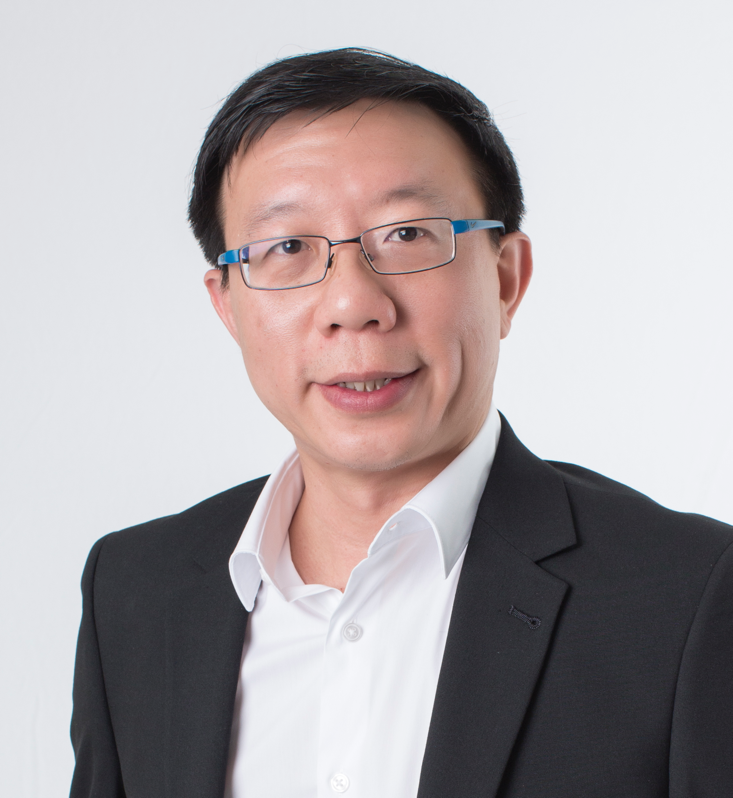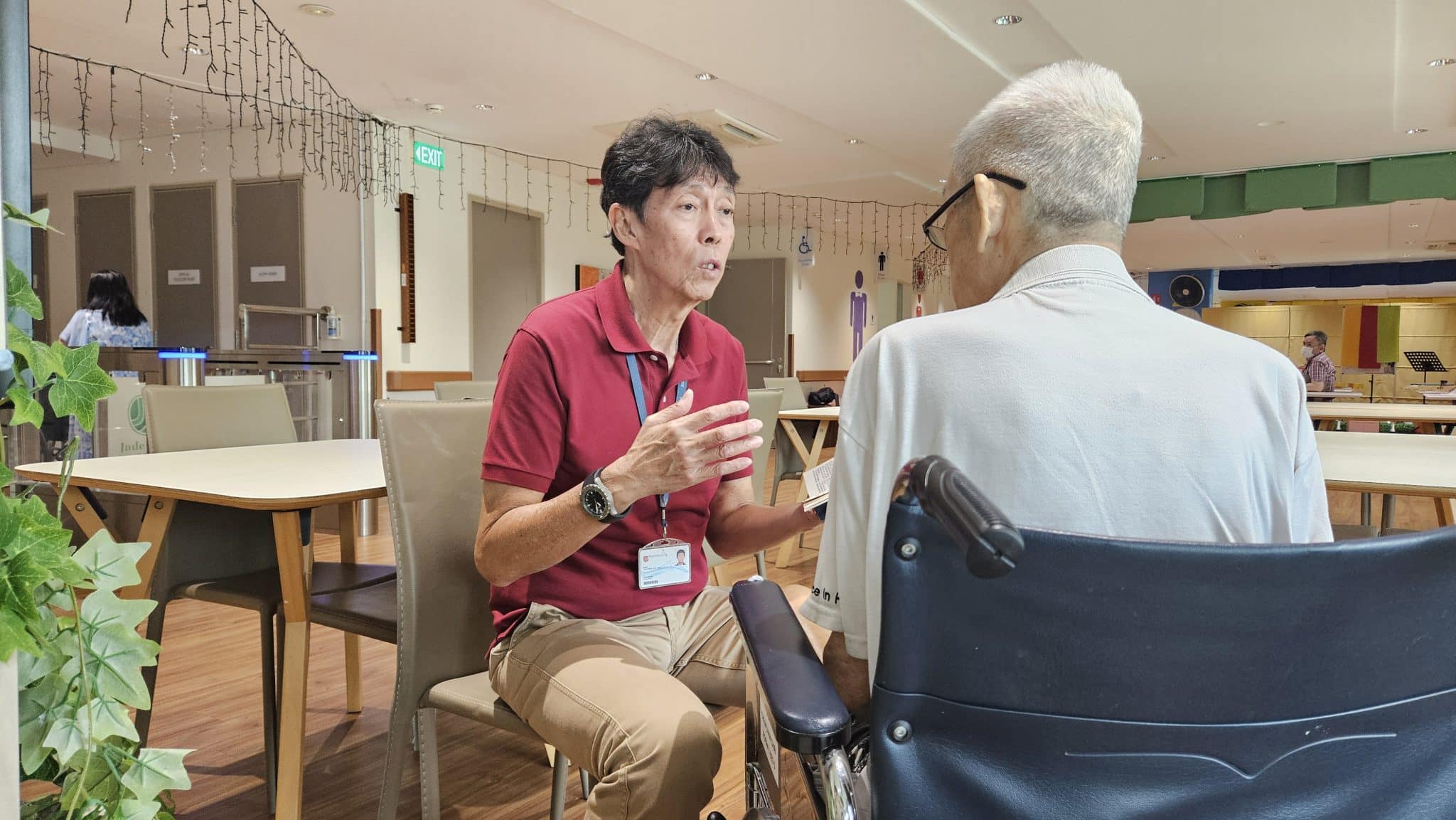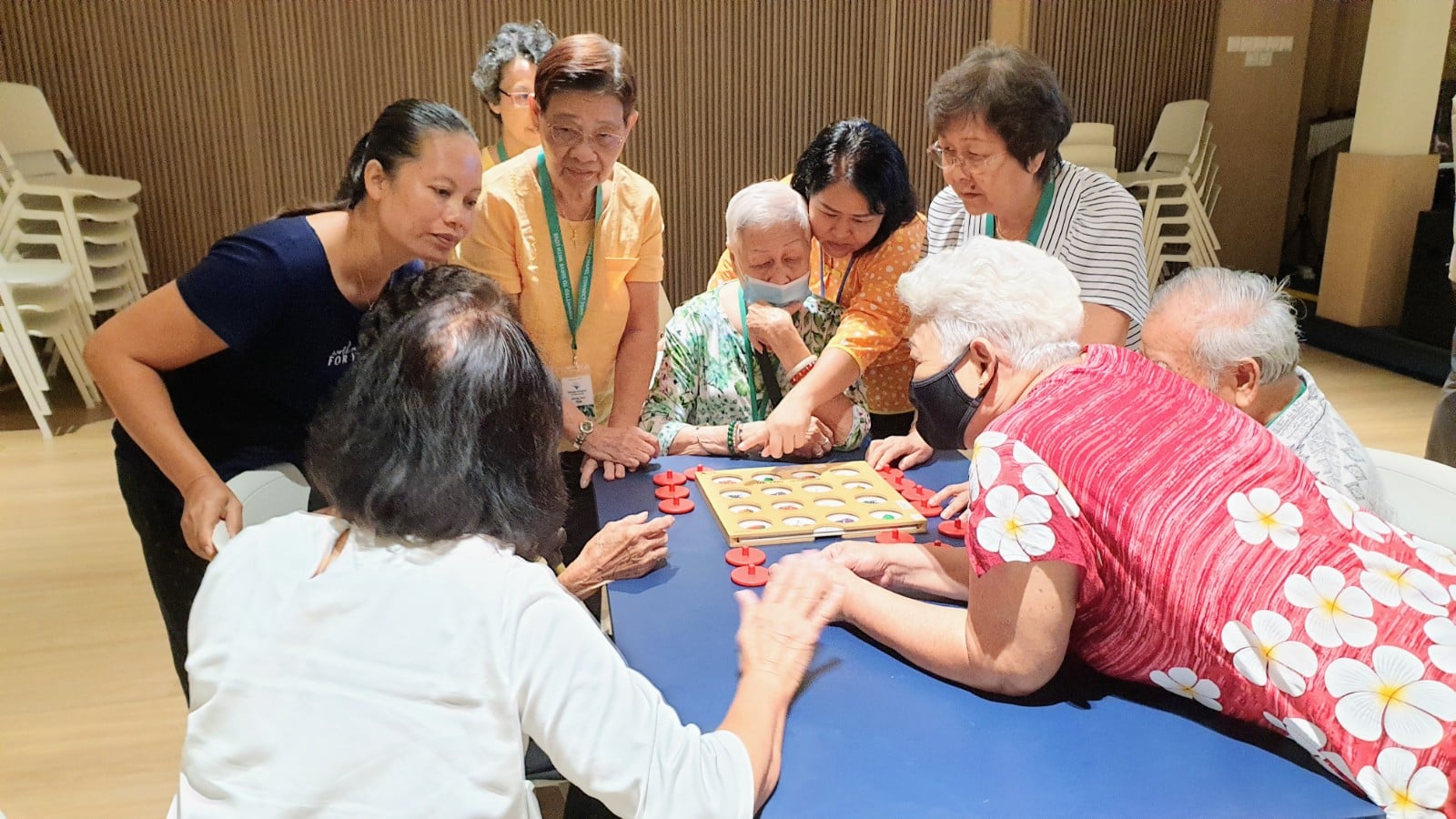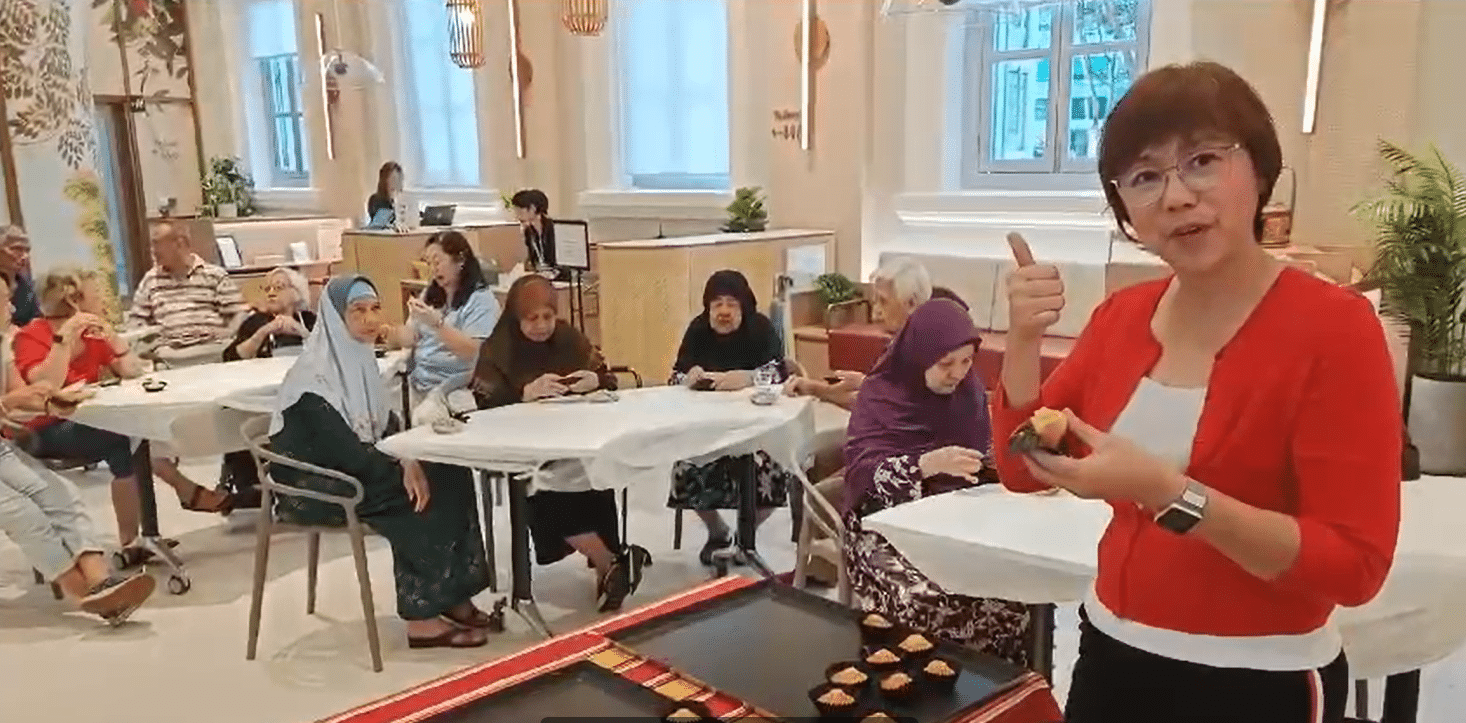3 ways we can redeem dementia, instead of giving in to hopelessness
Associate Professor Tan Boon Yeow // October 27, 2022, 3:04 pm
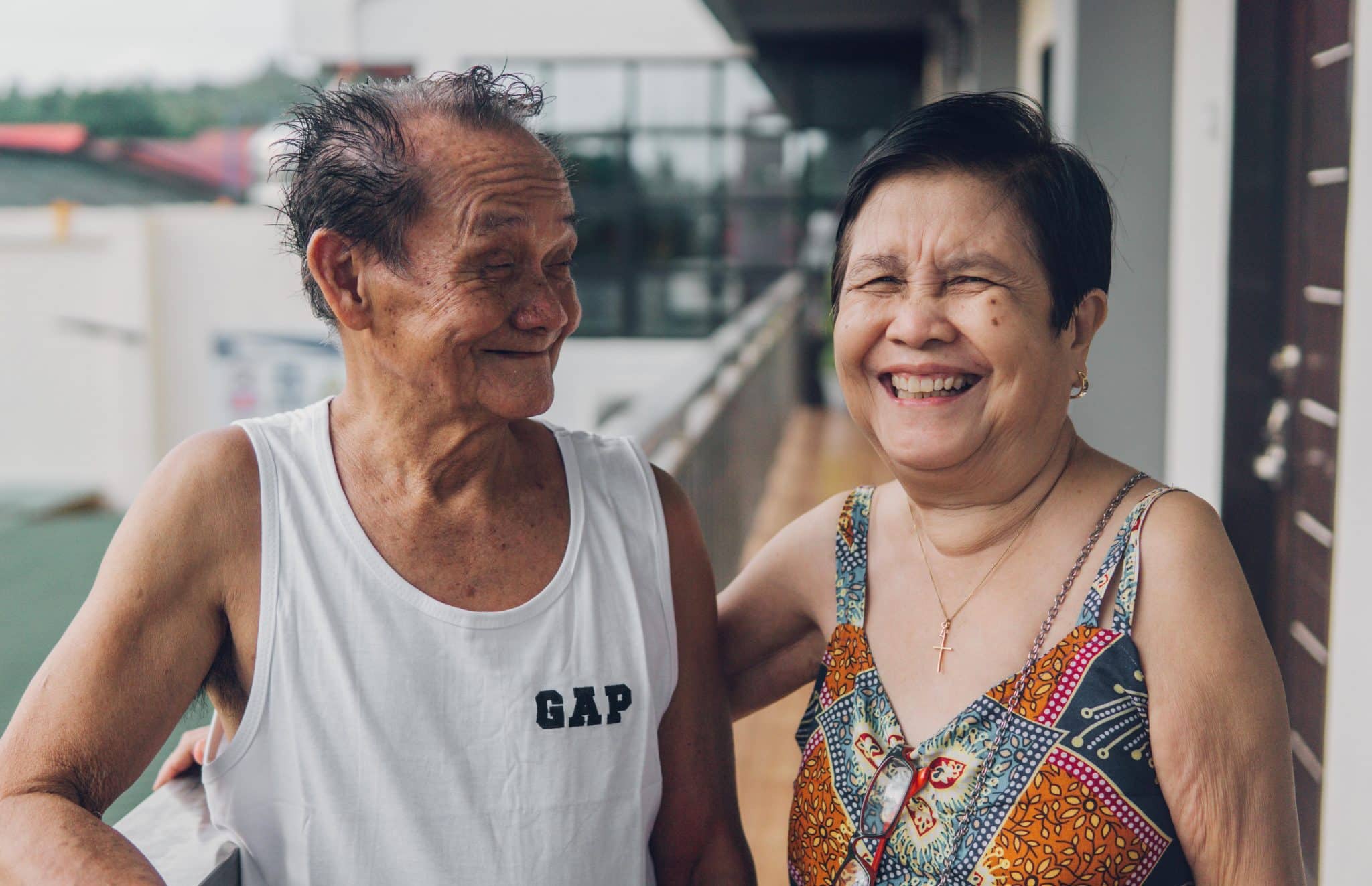
How can we challenge the stigma, fear and hopelessness of dementia? Can faith renew hope for persons living with dementia and their caregivers? Photo by Deedee Geli on Pexels.
What image or thought comes to mind when we think of a person living with dementia? Is it one of despair, struggle or fear and impending death?
Dementia, like many neurodegenerative diseases, often impacts both the person living with dementia as well as their loved ones.
Research has shown that the personhood of one with dementia doesn’t cease even as their dementia progresses.
As the disease continues to progress at different stages, change is the only constant. Not knowing what lies ahead may lead to dissonance, discomfort and pain for all concerned.
Over the past 20 years, I have had the privilege of caring for persons living with dementia through the course of my work and being a caregiver to my parents-in-law, who were both diagnosed with dementia for over 10 years.
I have observed caregiver angst, stress, burnout and even depression when carers do not understand or harness the resources available to care for their loved ones with dementia.
How can we challenge the stigma, fear and hopelessness of dementia? Can faith renew hope for persons living with dementia and their caregivers?
Here are three ways we can redeem dementia for God.
1. Refocus on the person rather than the disease
When dementia or any life-threatening chronic disease strikes, it’s often easy to focus on the disease rather than the person. This is often reinforced by clinicians who focus on the biomedical model of care.
It has been argued that the biomedical model of dementia is insufficient and that the effect of dementia on a person’s spirituality and personhood is important for the holistic care of the person.
It is easy for one to dehumanise the person … managing the symptoms while neglecting the psychosocial and spiritual needs.
As dementia affects memory and other aspects of brain function, the impact can be bewildering and oftentimes devastating for caregivers as they find it hard to understand and cope with the accompanying behavioural changes.
It is also easy for one to dehumanise the person living with dementia and treat them as one who is inexorably regressing towards the ultimate eventuality and focus on managing the symptoms while neglecting the psychosocial and spiritual needs of the person.
Research has shown that the personhood of one with dementia doesn’t cease even as their dementia progresses. This concept was propagated by Professor Tom Kitwood, a pioneer of person-centred care in the management of dementia.
Personhood is defined as the core of a person which is the sum total of their values, life experiences and beliefs.
Even with dementia, these life experiences, beliefs and core values of the person still holds despite progressive memory loss. Hence, if a person has received Christ before the onset of dementia, the reality of salvation does not change with memory loss.
Likewise, sufferers of dementia who still retain the mental capacity sufficient to understand the message of the Gospel can still have the opportunity to receive Christ as Saviour and Lord.
Dementia also does not stop a person from bearing the image of God (Imago Dei) that sets us apart from rest of creation (Genesis 1:26-27). Hence, regardless of the stage of the disease, God can still be reflected in the life of the person afflicted with the disease.
Even with dementia, the life experiences, beliefs and core values of the person still hold despite progressive memory loss.
I once looked after a missionary from America who was diagnosed with dementia. Having reached a stage where he had difficulty in caring for himself, the church reached out to our hospital for help as he had no other family in Singapore.
Despite his dementia, his personhood shone through when he was admitted for management as he would go around the ward sharing with patients and staff about the goodness of God, and how they could experience that, too, through receiving Jesus Christ as their Saviour. He continued to do that faithfully everyday till he lost his ability to communicate properly as a result of his dementia.
My own mother-in-law, Madam Chor, almost singlehandedly raised seven daughters after my father-in-law’s business failed. She became a seamstress and had to work doubly hard in order to put food on the table.
In spite of that, she always had a big heart and, when her own sister passed on, took on the task of looking after her niece and nephew as their widowed father struggled to care for them. One of her defining characteristics was her generous and sacrificial spirit towards her children.
In spite of her heavy chores, she would shoo them to study or rest rather than insist that they help her. She would always give the best portions of her own food to them. As her daughters grew up, almost all of them came to the saving knowledge of the Lord Jesus Christ and they started bringing her and my father-in-law to church.
If a person has received Christ before the onset of dementia, the reality of salvation does not change with memory loss.
In their old age, both my parents-in-law found faith in Christ and experienced the transformative power of God’s love. Years later, when my mother-in-law started to dement and deteriorated cognitively, her daughters were concerned that she might have “forgotten” about her faith and enquired it of her. She was very clear about her salvation and was assured of her place in Heaven!
The family started becoming more intentional in spending time with her and we would gather at her home for dinner every Saturday night. We noticed that without fail, when we filled her plate with food, she would share her favourite portions with the person beside her. The same sacrificial and generous spirit continues!
Remembering and refocusing on the individual as a person draws us back to the core of being human. He or she will continue to be the father or mother that we grew up knowing, obeying and loving.
On days when she is more confused, and especially when first meeting her daughters who visit from overseas, she sometimes fails to match faces to names correctly. When reminded, she will say (in Mandarin): “This is my own child, how can I forget!”
One is reminded of God’s reassurance in Isaiah: “Can a woman forget her nursing child, that she should have no compassion on the son of her womb? Even these may forget, yet I will not forget you.” (Isaiah 49: 15)
2. Restore dignity
When we are able to appreciate the personhood and “see” the person behind the dementia, then it becomes intuitive to seek preservation or restoration of the dignity of the person with dementia.
A few years ago, I travelled with my parents-in-law to America for my sister-in-law’s wedding. Both of them were in their early stages of dementia although it was only at the trip that we suspected that dad-in-law was also dementing as he was unable to care for himself throughout the two weeks in Hawaii.
Remembering and refocusing on the individual as a person draws us back to the core of being human.
We had to arrange for me and my wife to stay in the same hotel suite together with them after he promptly had a fall when he got up in the night to go to the bathroom on the first day of arrival. It was through the two-week long trip that I learnt how challenging and yet gratifying it can be to care for persons with dementia.
This ranged from helping them to maintain personal hygiene to grooming and dressing appropriately for different occasions. We also had to anticipate situations where they might struggle to maintain their dignity. After an initial settling into the new environment, we were able to enjoy our time together with the rest of the family and celebrate the wedding event.
Some had described persons living with dementia as having a second childhood experience. It might be a useful framing as, like young children, persons with dementia may require prompting and reminders to ensure that appropriate behaviours and decorum are adhered to.
A friend’s mother, 82-year-old Madam Tan, has never held a formal job, yet she had many responsibilities. She was a proud seamstress, ran a shophouse with her late husband, raised her four children, looked after her late mother and often cooked for her extended family. She was also a shrewd “financial planner” for the household.
But the sharp lady of the house declined as she aged and forgetfulness started to get to her. The symptoms worsened after her husband’s demise and she was diagnosed with dementia.
The following Chinese New Year, Mdm Tan’s children had the unpleasant task of informing relatives that their eagerly anticipated dish would not be served. Every year, relatives would gather at Mdm Tan’s home where eating her signature jiaozhi (dumplings) had become a faithful ritual.
As a body of Christ, we need to consider ways we can help persons living with dementia to stay connected with the church.
Unfortunately, that year, she had forgotten the traditional Shandong dish from her husband’s family, which she had made for more than five decades. Instead, she froze and asked the helper: “How to make?”
Though dementing, Mdm Tan still enjoys a good family gathering and will gamely go on any outing or family trip. However, her daughter sometimes wonders how “present” she is at these outings. She seems to be in her own space, with limited interactions with people around her.
On one recent visit, Mdm Tan was having a casual conversation with her granddaughter until the family realised that she had forgotten the granddaughter’s name. There was a moment of silence before the quick-witted granddaughter came up with an impromptu game to help her remember. Mdm Tan played along and everyone was glad how the evening turned out.
3. Renew hope
The experience of a person with dementia differs for each individual and can be summed up in an equation by Goldsmith (2004): “Dementia is the summation of a person’s life history, their personality, their specific illness, their general health, their network of relationships, their ethnic identity and their physical sensory environment.”
The Bible reassures us in Romans 8:38-39 that nothing (even dementia!) separates us from the love of God.
The Bible reassures us in Romans 8:38-39 that nothing (even dementia!) separates us from the love of God.
Persons with dementia can be assured that the Lord will continue to love them. Likewise, they should not be denied access to worship in whatever forms they can manage as well as in partaking the Holy Communion.
Worship is a means of God’s grace to help us believers connect with God and enter into his presence. Worship has the ability to affirm God’s love for the person with dementia and to renew and restore their hope in Him as his beloved who hasn’t been forgotten and to also provide opportunity for praise.
As a body of Christ, we need to consider ways we can help persons living with dementia to stay connected with the church or “their network of relationships”.
“The principle is that communication is possible, but that it will take different forms from what may be considered the ‘normal’.”(Goldsmith 1996)
There is not one phase of life that is more important than another. Each has its place; each is equally essential.
Communication doesn’t only take place through verbal and written means but also in other forms like art and music. In the later stages of the disease, touch or simply being present with the person with dementia will help to validate their personhood.
In a study into music therapy and spirituality for people with dementia, Kirkland and Mcllveen (1999) states: “To incorporate spirituality into our own lives sometimes requires a conscious effort, regular practice, and a mindset that nurtures the human spirit.”
The authors conclude that it is important for churches to be aware of those in their community who have dementia and to seek to continue to minister to them, whether in church, at home or in a care home or similar institution.
The above requires the sacrificial love of the church community to rally around the person and the family, providing support and care. This can be daunting as the spiritual and emotional needs of the person living with dementia evolves as the disease advances.
Goldsmith (2004) suggests that this work requires “honesty and courage” and “humility and considerable maturity”.
Churches need to be active in the practical expressions of love and ministry to those with dementia and their caregivers.
This knowledge should form the basis of the churches’ response – embodying the love of God; not forgetting those affected by dementia but embracing and ministering to them. Churches need to be active in recognising these spiritual needs and in the practical expressions of love and ministry to those with dementia and their care-givers.
Dementia is a debilitating and devastating disease, as the person appears to be “gone” before physical death occurs. Holistic care takes this into account and seeks to identify and address spiritual and psycho-emotional needs besides the physical needs of the person with dementia.
Robert Johnson wrote: “Each stage and phase of life is ordained by God and therefore has a purpose. There is not one phase of life that is more important than another: each has its place; each is equally essential.”
In 2 Corinthians 12:9-10, God declares that His grace will be sufficient for us in all circumstance. This is so for all persons with dementia as well as their caregivers. There is hope in Christ as he has promised never to leave us nor forsake us regardless of the circumstance.
“Do not cast me off in the time of old age; forsake me not when my strength is spent … So even to old age and gray hairs, O God, do not forsake me, until I proclaim your might to another generation, your power to all those to come … You who have made me see many troubles and calamities will revive me again; from the depths of the earth you will bring me up again.” (Psalm 71:9, 18, 20)
Always, Mother
Did you know that 1 in 10 people aged 60 and above is living with dementia, which is surging to become one of the most common diseases in Singapore?
St Luke’s Hospital will be launching “Always, Mother”, an interactive charity film that seeks to highlight the personhood of a person living with dementia.
The film allows viewers to put themselves in the shoes of caregiver Mr Ong, to actively influence the choices and navigate the potential care options for his mother, a person living with dementia.
“Always, Mother” premieres on October 28, 8pm–8.45pm.
To RSVP and for more event details, visit https://slh.org.sg/gosilver/always-mother/
RELATED STORIES:
We are an independent, non-profit organisation that relies on the generosity of our readers, such as yourself, to continue serving the kingdom. Every dollar donated goes directly back into our editorial coverage.
Would you consider partnering with us in our kingdom work by supporting us financially, either as a one-off donation, or a recurring pledge?
Support Salt&Light